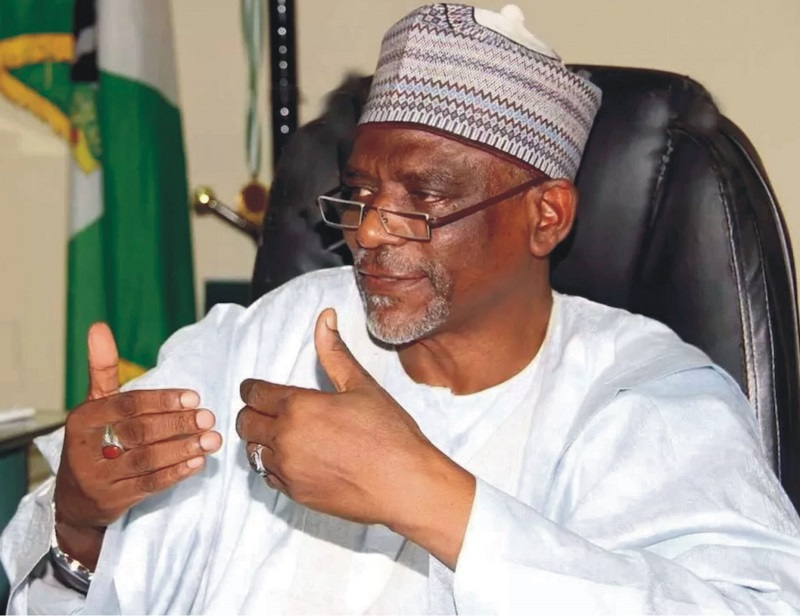EDUCATION
Minister faults implementation process of $611m BESDA Project

The Minister of Education, Mallam Adamu Adamu, has faulted the process involved in the implementation of the Better Education Service Delivery for All (BESDA) projects across the 17 focal States.
Adamu, represented by the Minister of State, Mr Chukwuemeka Nwajiuba disclosed this in Abuja on Thursday at the BESDA Technical Meeting between the ministry and the 17 focal states.
He, therefore, suggested the use of National Identity Number (NIN) for enrolment of new pupils/students on the scheme.
The Minister also queried the projected 13 million figure adopted by the World Bank as a basis for launching the program across the country.
According to the Minister, the projected 13 million Out- of-School figure presented in 2017 was not sufficient enough to determine the actual numbers of enrolment from across the states.
“When I came into office in 2019, I said this programme sounds like an official wayo business, they said what do I mean,I said my first degree is law, the 2nd and 3rd is law.”
“So I asked them; you have a cast number, somebody said Nigeria has 13million out-of-School children and that was done in 2013.”
“And that world Bank said they had projected the population of Nigeria to be X,Y,Z and that at the time they made the projection, they had counted the number of schools in Nigeria.”
“And the numbers of children that are there and they had done the mathematics and minus it from the number in school from the one they expected that they would have born and they said the minus is the result,” he said.
He further said he asked world bank how many were expected to die and was not told none.
“They said they have on the basis of this world bank number you have projected 13 million in 2017, I also asked them that so now we have loan and we are going to give it to these states and the states are now to collect 100 dollars on the head of every girl they bring and for every boy they take 80 dollars; and they said yes.”
“I asked further how do we know the ones they bring and the ones they don’t bring; how do we know their sex? Are we able to raise their skirts? They said No.
“Then I said this is a very very complicated scheme,“ The minister added.
The Minister further enquired on the system’s capacity on verification of claims by states presenting pupils for enrolment asking if there was any National enrolment Identity Number.
According to him, how do you know the sex of the child presented for enrolment? Is there an enrolment national identity number that you can give to these children when they are being enrolled?
He said that the response he got from the World Bank was no; therefore, faulting the programme.
Adamu also emphasised that every state that registers any pupil/student on the scheme must register the person with National identity number so as to effectively track the progress of the child under the BESDA project.
“I requested that pupils at basic level should be registered with NIN at least we should begin with the primary school level.”
“I told them let us start with this 611million dollars ,let us start with the project ,let us know how many children the states are bringing ; world bank disagreed,” he added.
He said that the country must get it right in its education sector, saying that this would only be achieved by setting the nation’s basic education sector on the right path.
He added that the security and stability of Nigeria hinged on the ability to provide functional education to the citizens.
The ministry’s BESDA Coordinator, Hajia Amina Haruna, said the programme had been progressive and recording results on the decrease of the Out-of-School Children in the focal states.
Haruna said that for every states that enrol a girl-child in the basic school, the sum of 100 dollars would be given while on enrolment of a boy in the school, the sum of 80 dollars would be given.
According to her, BESDA, a five year programme commenced in 2018 in Nigeria and will end on Oct. 31 2022.
“The BESDA programme is a $611m World Bank grant that aims to enrol OSC into the classroom ,improve literacy and strengthen accountability for results in basic education.”
“The benefitting states are Adamawa, Bauchi,Borno, Ebonyi, Gombe, Jigawa, Kaduna, kano ,katsina, kebbi, Niger, Oyo, Rivers, Sokoto,Taraba,Yobe and zamfara State.”




 Davido's Net Worth & Lifestyle
Davido's Net Worth & Lifestyle 
